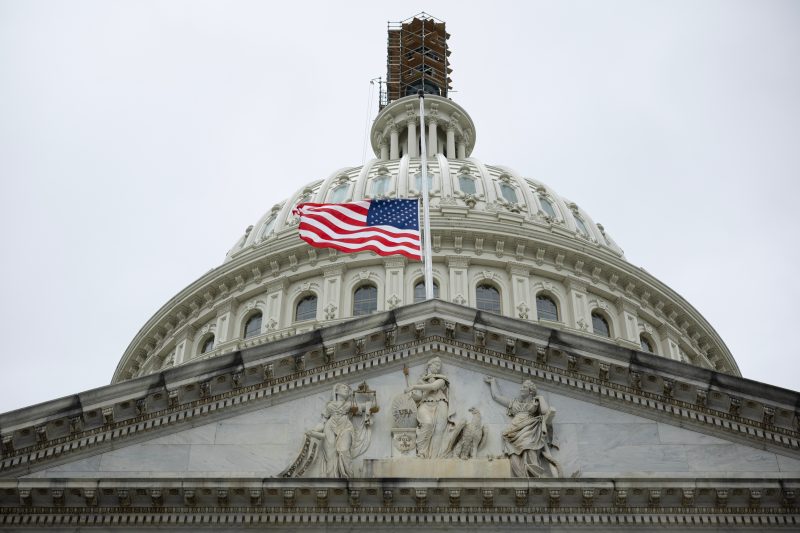
Moody’s lowers U.S. credit outlook, citing political dysfunction

Moody’s on Friday offered a sharp rebuke of political dysfunction in the United States, with the credit-rating agency changing its outlook for U.S. sovereign debt to negative from stable and warning that “continued political polarization” in Congress threatens the country’s fiscal strength.
The agency, though, left the nation’s AAA credit score intact for now, keeping it as the last of the big three ratings firms to maintain the United States at the top mark. Fitch downgraded the United States’ long-term credit rating in August, following Standard & Poor’s, which did so in 2011 after a debt ceiling standoff in Congress.
“Continued political polarization within U.S. Congress raises the risk that successive governments will not be able to reach consensus on a fiscal plan to slow the decline in debt affordability,” Moody’s said in a statement Friday.
It warned of “downside risks” because of a rising budget deficit with no apparent plan to rein in the deficit at a time of significantly higher interest rates from the Federal Reserve.
Changing the outlook to negative suggests the possibility of a credit downgrade, which could raise borrowing costs for the United States by eroding the value of U.S. Treasurys. That could lead to higher interest rates on mortgages and consumer loans, which have already increased over the past several months during the Fed’s aggressive campaign to bring down inflation.
Moody’s cited a string of recent red flags, including brinkmanship over the debt limit, the ouster of the House speaker and rising threats of another government shutdown. “In Moody’s view, such political polarization is likely to continue,” the firm said, making it increasingly difficult for lawmakers to “reverse widening federal deficits.”
Long-term U.S. borrowing costs have recently risen because of concerns about the Treasury Department’s ability to address the country’s $1.7 trillion budget deficit. Fears of a possible government shutdown starting next week only add to concerns that U.S. lawmaking has devolved into a theater of chaos.
Treasury Department officials on Friday said they disagreed with the negative outlook.
“The American economy remains strong, and Treasury securities are the world’s preeminent safe and liquid asset,” Deputy Treasury Secretary Wally Adeyemo said in a statement.
